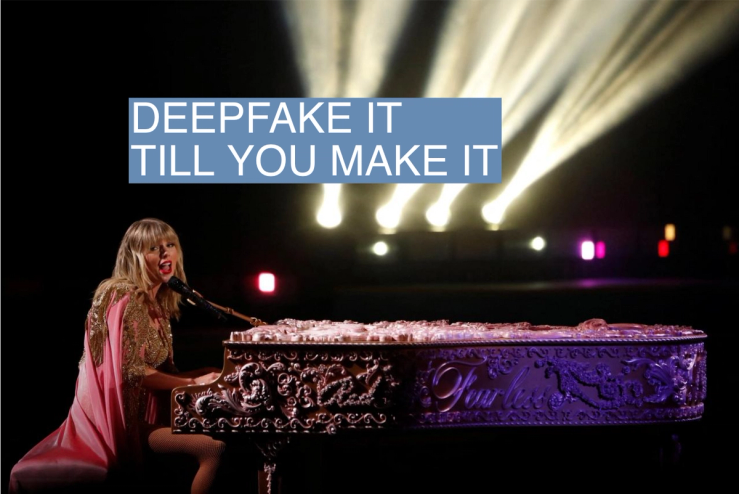The News
Google is reportedly in talks with the world’s largest music company to license artists’ songs and voices for use in artificial intelligence creations.
The Financial Times reported Tuesday that the early discussions with Universal Music Group could eventually allow fans to create AI-generated songs using models trained on existing records, with the original artists and copyright owners getting royalties.
We’ve curated reporting and insights on the future of AI and music.
Insights
- Universal Music has been central to the discussions surrounding the use of AI to make music ever since high-quality “deepfake” songs popped up earlier this year. In April, the label took action to remove an AI-generated song that sounded like Drake and The Weeknd. Universal’s general counsel recently told a U.S. Senate panel that deepfakes “can lead to consumer confusion, unfair competition against the artist that actually was the original creator, market dilution and damage to the artist’s reputation.” — Music Business Worldwide
- A deal between Google and Universal could “disrupt the media industry by paving the way for large-scale use of AI content,” Adam Clark writes in Barron’s. It also points to the importance of AI companies finding partners in the entertainment industry, an especially touchy subject right now amid the ongoing writers’ and actors’ strikes in Hollywood, which are partly centered around the future use of AI.
- Similar AI and copyright-related disputes are playing out in the book publishing industry, with some authors suing over claims that AI models were illegally trained on their copyrighted work without their consent. — Semafor
- Google has experimented with AI music creation before, rolling out a tool earlier this year that allowed users to generate instrumental loops based on text inputs. The tool was released to the public months after Google acknowledged in a preview report that it had the potential to generate copyrighted melodies.
AD


